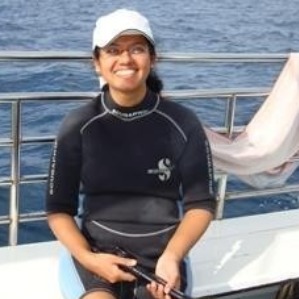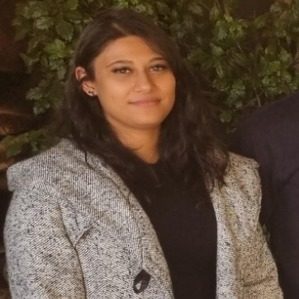Anita M George, University of Kerala, India
Marine sponge (Demosponges) culture gains importance based on their pharmacological (bioactive compounds), cosmeceutical and nutraceutical values (collagen) and biomaterials (biofilms). Moreover, their efficient filter-feeding nature, totipotency, plasticity, ecological resilie [....] » Read More









Title : Utilizing art to enhance learning STEM subjects required for aquaculture
Joni Lee Giovanna Hesley, Education Emerita, CropKing Inc., United States
This presentation explores an approach to strengthening Science, Technology, Engineering, and Math (STEM) education within elementary and secondary aquaculture and hydroponics programs by integrating artistic practices into core science learning. An aquaculture/hydroponic school [....] » Read More
Title : Integrating art, science and rural development: The multifaced role of aquarium keeping
T V Anna Mercy, Kerala University of Fisheries and Ocean Studies, India
Ornamental fish keeping has evolved beyond a recreational pastime to become a dynamic trade, a creative art form, a scientific discipline, and a catalyst for rural socioeconomic development. This presentation explores the multifaceted nature of ornamental aquaculture, highlightin [....] » Read More
Title : Application of Artificial Intelligence and NISAR satellite to study the air sea CO2 exchange and aquatic toxicology to develop ‘Aquatic Pollution Remediation Technologies’(PART)
Virendra Kumar Goswami, Indian Institute of Technology, India
This Study aims to apply Artificial Intelligence and , and NISAR Satellite Data to study Aquatic toxicology, Ocean Energy, Air-Sea CO2 exchange, land, Ocean and cryosphere interaction comprising the study of ice-covered surfaces, islands, sea ice and selected oceans every 12 days [....] » Read More
Title : Seaweed aquaculture policy gap analyses in Indonesia, Kenya, and Tanzania
Megan Considine, The Nature Conservancy, Puerto Rico
The Nature Conservancy has active programs in Indonesia, Tanzania, and Kenya that aim to support the growth of seaweed aquaculture in a manner that provides direct ecological benefits, produces low carbon food and products, and provides sustainable livelihoods for local and Indig [....] » Read More
Title : Monitoring alpha and beta diversity of marine seaweeds in selected areas in the Red Sea
Eman Mostafa Abdelrahman, The American University in Cairo, Egypt
The Red Sea is one of the most diverse ecosystems in the world. More than 900 taxa of macroalgae have been identified in the Red Sea from all its coasts. However, being a dynamic corridor linking the Indo-Pacific Ocean with the Mediterranean Sea through the Suez Canal, algal al [....] » Read More
Title : Site suitability analysis for sea cucumber mariculture in the coastal area of Bangladesh
Muhammad Mizanur Rahman, Shahjalal University of Science and Technology, Bangladesh
Sea cucumber (Holothuria spp.) mariculture could be a significant prospect for blue growth in Bangladesh because of its strong demand in the international market and ecological benefits, including sediment bioturbation and water filtration. This study utilized environmental data [....] » Read More
Title : Linking phenotypic plasticity and environmental stress responses to conservation of endemic cyprinids in Moroccan freshwater ecosystems
Abdelilah Ahnich, Sultan Moulay Slimane University, Morocco
Moroccan freshwater ecosystems support exceptional endemic biodiversity but are increasingly threatened by climate change and human disturbances. Understanding how species coexist and adapt along environmental gradients is essential for predicting ecosystem responses to global ch [....] » Read More
Title : Determining the size and age at sexual maturity for the mud cockle katelysia (bivalvia: veneridae) to guide fishing management practices in coffin bay, South Australia.
Laura Thomas, Flinders University, Australia
Knowledge of population characteristics, such as reproduction and life history traits, is essential for sustainable fisheries management. Commercially important Venerid bivalves play a significant role in fisheries and aquaculture worldwide, and the reproductive cycle is complex [....] » Read More
Title : DNA barcoding as a tool for biodiversity and ecological assessment in African freshwater systems: A case study of upper section of River Mpanga, Uganda
Basooma Rose, BOKU University, Austria
Freshwater ecosystems in the sub-Saharan Africa, the hierarchically nested river networks like wadable streams, support aquatic biodiversity and ecosystem functioning. However, they are increasingly impaired by anthropogenic pressures, including land-use change, pollution, hydrol [....] » Read More
Title : Growth pattern studies on fish body length weight and otolith length weight relationship
Regina Gwaibo, PNG University of Natural Resources and Environment, Papua New Guinea
This study examines the relationship between fish body morphometrics (length and weight) and otolith dimensions (length and weight) to evaluate the strength of association between somatic and otolith growth. Otolith-based analyses are among the most significant approaches in cont [....] » Read More
Title : Variations in nutritional and bioactive properties of North Atlantic Sea cucumber (Cucumaria frondosa): Role of seasonality, location, and processing
Amit Das, Memorial University of Newfoundland, Canada
Sea cucumbers are valued as traditional and luxury seafood, known for their rich nutritional and bioactive profiles. However, the effects of seasonality, geographical location, and processing methods on these qualities remain underexplored. For this, the nutritional and bioactive [....] » Read More
Title : Acute toxicity of bleach exposure in Macrobrachium crenulatum
Coral Salgado Mendez, University of Puerto Rico, Puerto Rico
Freshwater shrimp have become the most economically important and most internationally traded aquatic animal. Such high demand has led to unsustainable practices, such as the use of sodium hypochlorite also known as liquid bleach. Chlorine pollution has become a risk in the fresh [....] » Read More
Title : Eco friendly bioremediation: Azolla pinnata as a natural shield against hexaconazole toxicity in cyprinus carpio (LINNAEUS, 1758)
Mandeep Kaur, Panjab University, India
Fish populations worldwide face mounting pressure from agricultural runoff containing fungicides, with Cyprinus carpio (common carp) being a particularly vulnerable and commercially important species. Hexaconazole (HEX) is a triazole fungicide commonly used in crop protection. It [....] » Read More
Title : Spatial refuge and reproductive potential of the vulnerable the picked dogfish (Squalus acanthias) in the Georgian Black Sea: Evidence from experimental trawl survey
Guranda, National Environmental Agency, Georgia
The Picked Dogfish (Squalus acanthias), a slow-growing and late-maturing elasmobranch, has undergone substantial population declines throughout its range due to historical overfishing and insufficient spatial protection (Ebert et al., 2021). In the Black Sea, the species is liste [....] » Read More